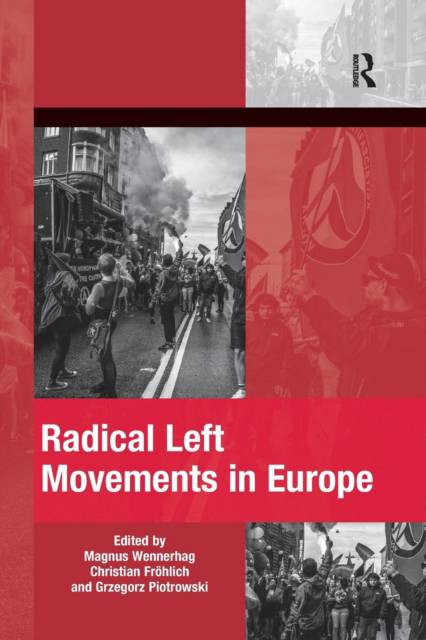
- Retrait gratuit dans votre magasin Club
- 7.000.000 titres dans notre catalogue
- Payer en toute sécurité
- Toujours un magasin près de chez vous
- Retrait gratuit dans votre magasin Club
- 7.000.0000 titres dans notre catalogue
- Payer en toute sécurité
- Toujours un magasin près de chez vous
Radical Left Movements in Europe
Description
When the Iron Curtain lifted in 1989, it was seen by some as proof of the final demise of the ideas and aspirations of the radical left. Not many years passed, however, before the critique of social inequalities and capitalism was once again a main protest theme of social movements. This book provides an account of radical left movements in today's Europe and how they are trying to accomplish social and political change.
The book's international group of leading experts provide detailed analysis on social movement organizations, activist groups, and networks that are rooted in the left-wing ideologies of anarchism, Marxism, socialism, and communism in both newly democratized post-communist and longstanding liberal-democratic polities. Through a range of case studies, the authors explore how radical left movements are influenced by their situated political and social contexts, and how contemporary radical left activism differs from both new and old social movements on one hand, and the activities of radical left parliamentary parties on the other. Ultimately, this volume investigates what it means to be 'radical left' in current day liberal-democratic and capitalist societies after the fall of European state socialism.
This is valuable reading for students and researchers interested in European politics, contemporary social movements and political sociology.
Spécifications
Parties prenantes
- Editeur:
Contenu
- Nombre de pages :
- 296
- Langue:
- Anglais
- Collection :
Caractéristiques
- EAN:
- 9780367208035
- Date de parution :
- 17-01-19
- Format:
- Livre broché
- Format numérique:
- Trade paperback (VS)
- Dimensions :
- 156 mm x 234 mm
- Poids :
- 421 g

Les avis
Nous publions uniquement les avis qui respectent les conditions requises. Consultez nos conditions pour les avis.





